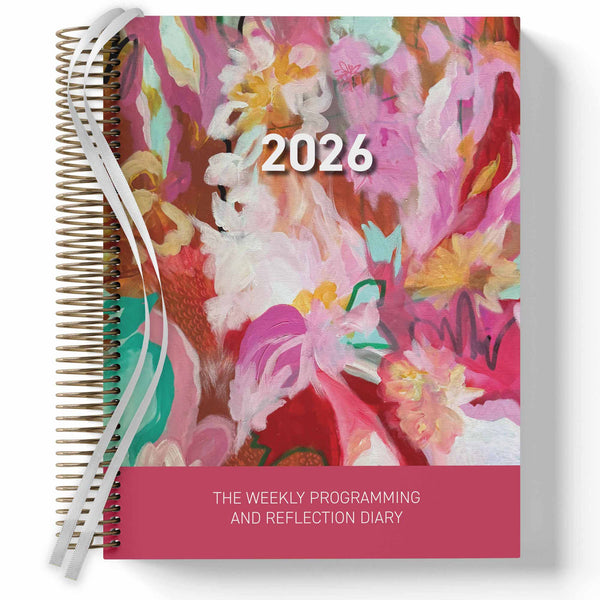Butler Buzz
-

Support Directories: Finding the Support You Need on Our Website
Finding support shouldn’t be a challenge. Our website brings everything you need into one place—from help using your diary, to professional development, to live assistance when you need a real person. Here’s a simple guide to where you can find support and what’s available to help you stay organised, confident, and connected in your ECEC practice.
-

Weekly Checklist in the FDC Combined Compliance Checklist and Programming Diary
One of the most practical features of the Family Day Care Combined Compliance Checklist and Programming Diary is the Weekly Learning Outcome Checklist that appears in the monthly programming spread. While it may look simple at first glance, it has been carefully designed to support both clarity in programming and compliance with learning frameworks such as the EYLF and MTOP V2.0.
-

A Student’s Guide to Using Butler Diaries while Studying
If you’re studying your Certificate III or Diploma in Early Childhood Education and Care, the right diary and planner can help you stay organised, meet placement requirements, and build professional skills. This guide walks you through the best Butler Diaries products for students, plus tips on how to use them effectively for study, programming, and reflections. Turn your diary into a powerful learning and career tool from day one.
-

Digital vs Paper Planners: Which Works Better?
When it comes to planning, early childhood educators in Australia face a tough choice: digital or paper planners. Both have pros and cons, and the right option depends on your workflow, compliance needs, and personal preferences. Here's a quick breakdown...
-
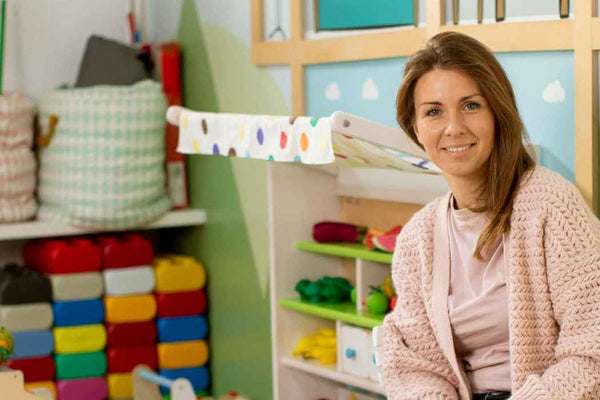
The Multifaceted Role of the Children’s Centre Diary: A Communication Hub and Quality Improvement Tool
How the Children's Centre Diary captures many roles across different teams — one powerful tool to lead, reflect, and stay connected. From Centre Directors to Room Leaders to the whole team, the Diary has become more than a planner. Here’s how different roles in your centre can use the Children's Centre Diary to keep everything — and everyone — on the same page.
-

How to Create Effective Daily Reflection Journals
Daily reflection journals help early childhood educators in Australia evaluate their teaching methods, track children's progress, and meet compliance standards like the EYLF and NQS. They improve teaching quality, support professional growth, and strengthen family-educator connections. Here's how you can start...
-

A Closer Look at the Learning Data/Jottings Reflection Box in Your Programming Diary
It’s easy to record observations and then move quickly onto the next experience. But what truly deepens our practice is what we do with that information. The Learning Data or Jottings space in your diary isn’t just a placeholder for notes—it’s a tool for meaningful reflection, insight, and intentional planning. Used thoughtfully, it becomes the bridge between what was and what could be, allowing you to refine your practice, respond to children’s evolving interests, and ensure every child’s voice is heard.
-
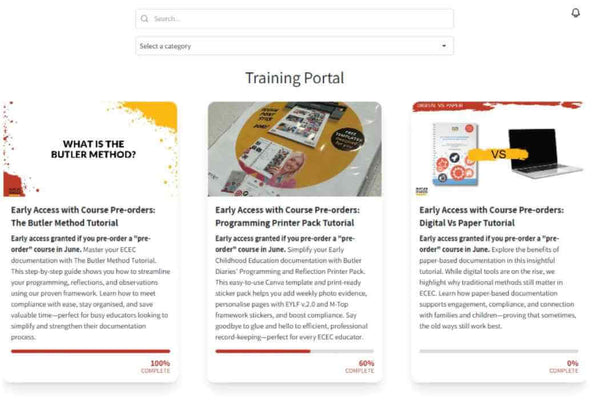
Training Portal Guide and FAQs
The Butler Training Portal has been developed as another avenue of support for our customers. Here's everything you need to know...
-

50 ways to use a notebook as an early childhood educator
Your educator notebook is an absolute ESSENTIAL in ECEC, and now you can enjoy stunning guest artist educator notebooks that match your Educator Diary. Here are 50 ways to use your notebook to help clear your mind and keep you on track.
-

Tips for Using the Monthly Programming and Reflection Spread in the Family Day Care Combined Compliance Checklist and Programming Diary
Tips for Using the Monthly Programming and Reflection Spread in the Family Day Care Combined Compliance Check and Programming Diary
-

Tips for Using our Central Outdoor Weekly Programming and Reflection Diary
Tips for Using our Central Outdoor Weekly Programming and Reflection Diary - Updated 2025
-

How to Use Butler Diaries' Programming Tools for Minimum Documentation but Maximum Compliance
It is easy to identify one of the biggest strains on Early Childhood Educators... Paperwork. With constant updates to frameworks and regulations and no clear, straight forward answer on what needs to be documenting, services often end up over-documenting in order to try to meet their compliance requirements.
-

Does your Programming Diary Support Critical Reflection?
Reflection is a key practice in ECEC, helping educators assess and improve their teaching strategies, interactions, and environments. However, there is a distinct difference between reflection and critical reflection—both are important, but critical reflection goes deeper, prompting meaningful change and professional growth. By using Butler Diaries, educators can structure their reflective practice and ensure they are engaging in ongoing critical reflection. Let’s explore the differences between reflection and critical reflection and how to use your Diary effectively.
-
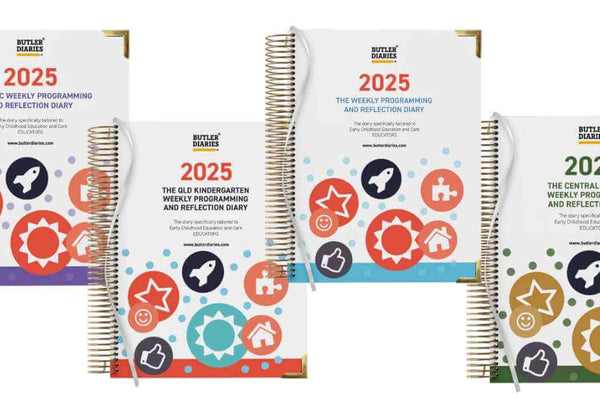
The Butler Method: Simplifying Programming and Reflection in Early Childhood Education and Care
The Butler Method is a streamlined approach to programming and reflection in ECEC, designed to bring clarity, efficiency, and compliance to the often complex planning cycle. It is a boxed method that values intentional teaching while embracing spontaneous learning moments, seamlessly aligning with Frameworks. By offering a structured yet flexible approach, the Butler Method supports educators in meeting the requirements of NQS while also incorporating the insights of key educational theorists.
-
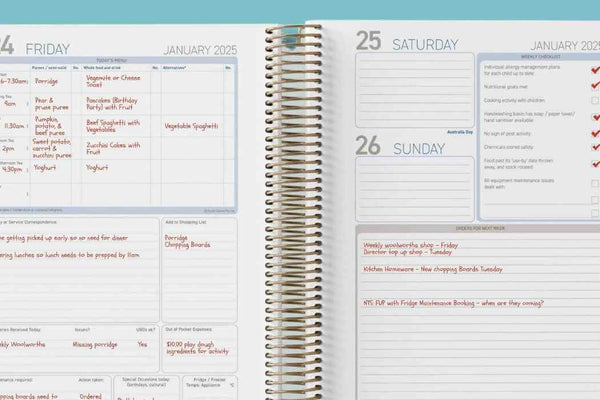
A Peek into the Early Childhood Cook Diary for ECEC with Examples
Here's we take a peek into the Early Childhood Cook Diary to see how it can help cook's and chef's in Early Childhood manage their kitchens and stay on top of compliance. -
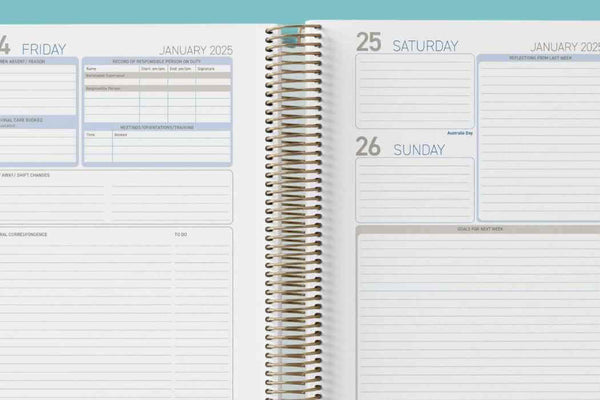
A Look into the Children's Centre Diary with Examples
Here's we take a look at the Children's Centre Diary to see how it can be used to streamline your admin and help manage your office. -
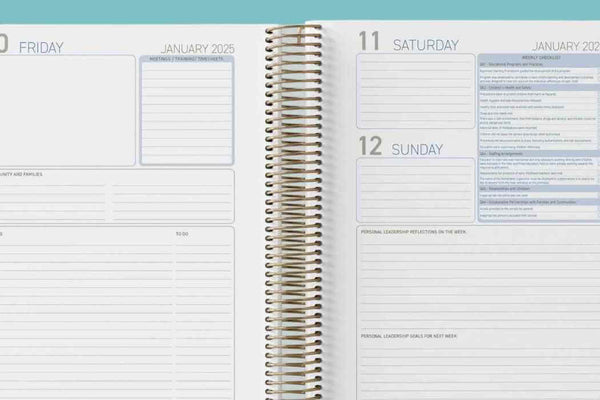
A Deep Dive into the Nominated Supervisor Diary with Examples
Here's we take a deep dive into the Nominated Supervisor Diary to see how it can be used to improve efficiency, memory and quality improvement in your service.
-
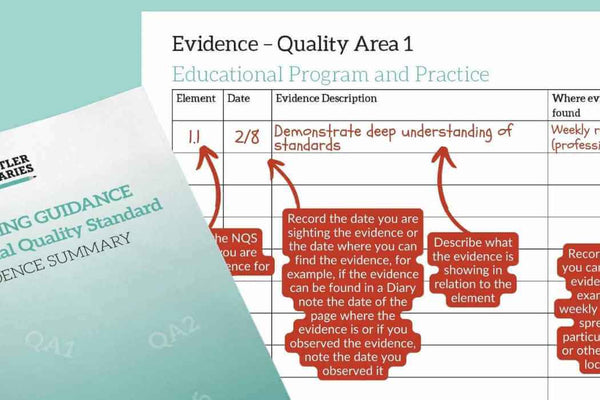
How to complete the Exceeding Guidance for National Quality Standard: Evidence Summary
The Exceeding Guidance for NQS Evidence Summary is designed to support you in succeeding at exceeding with guides to exceeding themes and evidence pages for national quality standards. Each quality area is followed by an evidence page that captures details of the evidence you've collected, where it is kept, and which element it relates to. -

Enhancing Early Childhood Education with Reflection Diaries: A Comprehensive Guide
As an early childhood educator, maintaining a reflection diary can significantly enhance your teaching practices and the learning experiences of the children under your care. This article delves into the importance of an early childhood educator reflection diary and how the Butler Diaries' Weekly Programming and Reflection Child Educator Reflection Diary can support you. -
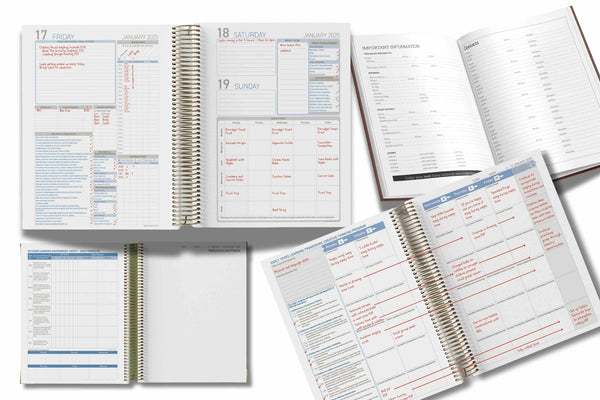
What is a Diary in Childcare and Early Childhood Education and Care?
Diaries in Childcare play an indispensable role in achieving this, serving as more than just a tool for keeping track of dates and events. They are the backbone of effective planning, assessment, and communication within educational settings. Here, we delve into the multifaceted purposes of a diary in ECEC and how it can transform your professional practice. -
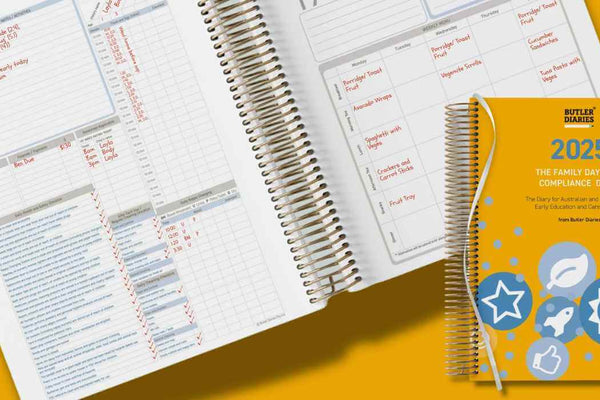
The Family Day Care Educator Diary for Family Day Care Educators
Navigating the world of compliance as a family day care educator can be daunting. At Butler Diaries, we understand these challenges and are committed to simplifying your experience with our specialised Family Day Care Educator Diary, the Family Day Care Compliance Diary. -
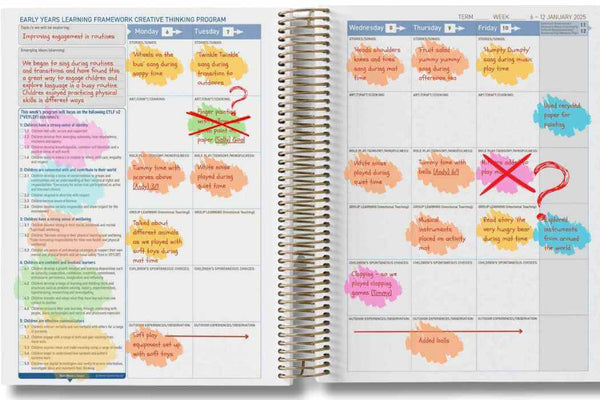
A Plan is a Guide Right? What Happens if you Don't Complete your Entire Program that Day?
We saw a question raised in a Facebook group, if the department were to visit and you had not completed your program for the day - will this impact your Assessment? The Short Answer - Nope! The Long Answer - No, this will not impact your Assessment and Rating if you show what you actually did and why. Here are some tips!
-

Example Program Ideas for Babies with Links to EYLF V2
In our blog, 'Tips for Programming for Babies in the Weekly Programming and Reflection Diaries' we discuss how to adjust your program for babies and one of our tips was understanding that not all boxes in your program need to be filled every day. Here is an example program of activities for babies and includes which box it would program under in your Weekly Programming and Reflection Diary, links to EYLF and the description you need to replicate the experience. -

Tips for Programming for Babies in the Weekly Programming and Reflection Diaries
The Weekly Programming and Reflection Diaries are designed to capture programs from babies through to school aged children. Slightly adapting the way you approach programming is what will help you complete your program. This article will support you to implement the Butler Method for younger age groups.
-
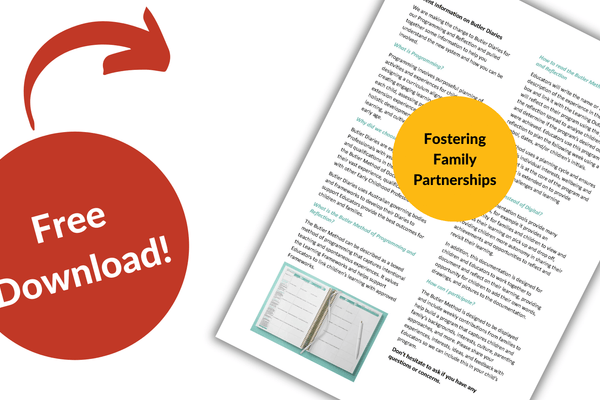
Supporting Families to Understand the Butler Method: Free Parent Information on Butler Diaries
Embark on a shared journey of learning and growth with families by downloading our free Parent Information on Butler Diaries factsheet that supports families understand programming, the Butler Method, the benefits of written records, and how to read and participate in your program. -
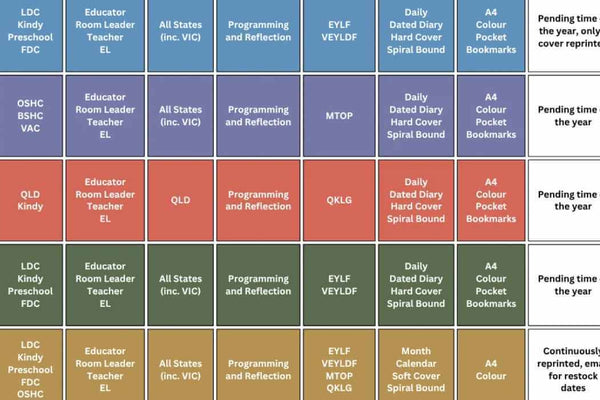
Which Diary is right for me?
Here is a visual guide of which Butler Diaries may be right for you. Check out their purpose, who they are designed for, what's included and what variations are available. -
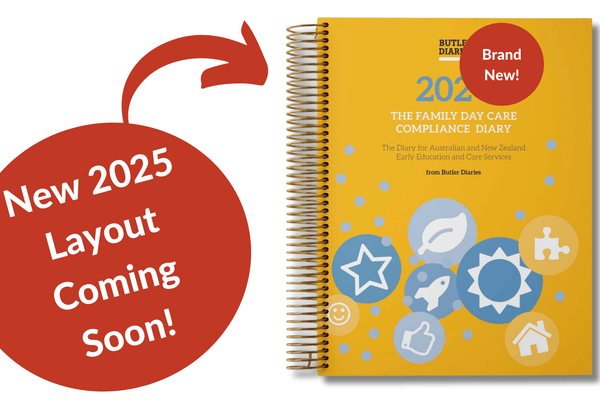
Family Day Care Compliance Diary: What's New
We collected your feedback and made some changes to the Family Day Care Compliance Checklist Diary. We have now jam packed more of your compliance needs into the same Diary while reducing how bulky it is! Sounds impossible we know, but we did it! Here we go through the changes and give you some examples...
-

Where to find examples of the OSHC Weekly Programming and Reflection Diary?
We have a ton of examples and support available for our Weekly Programming and Reflection Diaries... here's how to find them. -

FAQs on the OSHC Diary
The OSHC Diary is a compliance tool for those working in Outside School Hours Care. It captures medical notifications, birthdays and celebrations, children leaving for activities, casual bookings and cancellations, family communication and visitor sign-ins. This means much of your compliance requirements are recorded in the one place and OSHC Educators and Leaders have a daily glance of what's happening inside the service to support supervision, children's inclusion and legal requirements. -
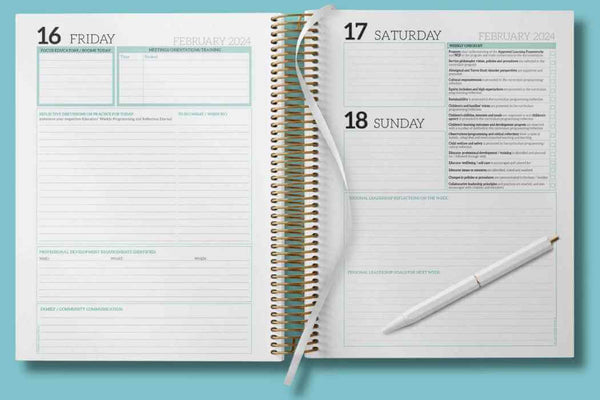
A Quick Guide to the Educational Leader Diary with Examples
The Educational Leader Diary when used correctly acts as a Reflection Tool and shows how critical reflection is being used within the team to improve outcomes for children. It demonstrates and captures evidence of the role of the Educational Leader and the work they are doing to support Educators. Here's a quick guide to the Educational Leader Diary to maximise the way it's being used in your service. -
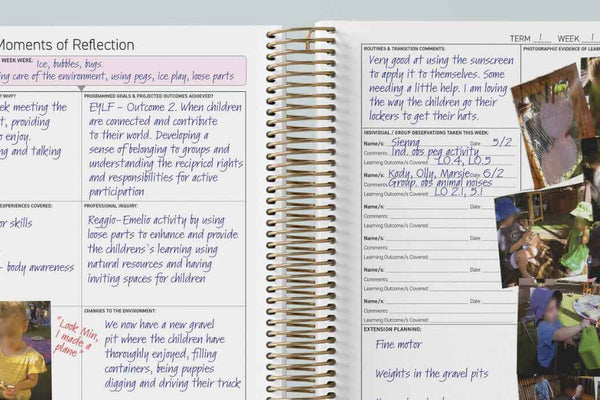
FAQs on the Weekly Programming and Reflection Child Educator Diary
Have some questions on how the Weekly Programming and Reflection Diary can best be used to show the cycle of planning and children's goals? Wondering how to use it and show evidence for Assessment and Rating... all your information is here. -

A Guide to Writing Observations in Early Childhood Education
The practice of documenting observations is a cornerstone in Early Childhood Education and Care (ECEC). These observations serve multiple purposes, from mapping a child's developmental milestones to identifying their interests and skills. Moreover, observations lay the groundwork for effective programming and are instrumental in maintaining quality as delineated by frameworks like the Early Years Learning Framework (EYLF) and the National Quality Standards (NQS). -
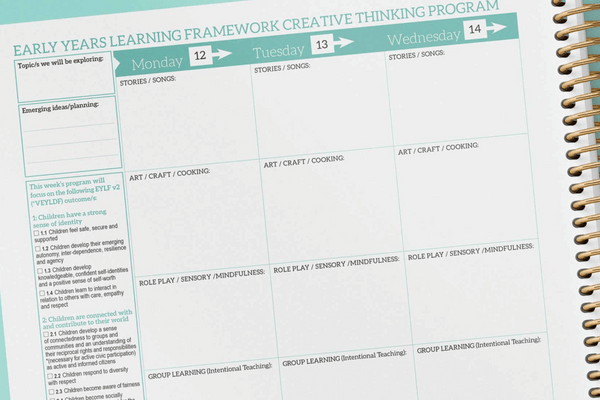
Your job simplified...
For just $1.15 a week you can simplify your job or enjoy just 2 apples a week... not even an apple a day... The key to the Weekly Programming and Reflection Child Educator Diary comes down to saving. With our experience in ECEC and customer and assessor feedback, we have designed and perfected the Butler Method designed to save in more ways than one.













































